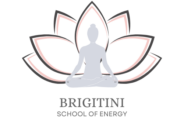
As humans, we all have the innate ability to heal ourselves and others. However, not everyone is aware of their healing potential or feels confident in their ability to act as a healer.
This article explores the concept of being a healer, how to recognize your own healing potential, and ways to overcome common obstacles to embracing your role as a healer.
Signs that you may be a healer
There are several signs that may indicate that you have a natural inclination towards healing work. These include:
- Empathy and sensitivity to others’ emotions: You may be highly attuned to the emotions of others and feel a strong desire to alleviate their suffering.
- Natural desire to help and heal others: You may feel a strong sense of purpose in helping others and find fulfillment in doing so.
- Ability to intuitively understand others’ needs: You may have a natural ability to sense what others need, even if they do not express it directly.
- Strong connection to spirituality or a higher power: You may have a deep connection to spirituality or a higher power, which guides your actions and intentions.
- Experiences of synchronicities and meaningful coincidences: You may notice meaningful coincidences and experiences that seem to be guiding you towards a path of healing.
- Attraction to healing modalities and practices: You may have a strong interest in various healing modalities and practices, such as energy healing, meditation, or herbal medicine.
Understanding different types of healers
There are many different types of healers and healing modalities, each with their own unique approach and techniques. Some common types of healers include:
- Energy healers: These healers work with the energetic body, using techniques such as Polarity Therapy or Qi Gong to balance and clear energy blockages.
- Spiritual healers: These healers work with the spiritual or energetic aspects of healing, using practices such as prayer, visualization, or meditation to facilitate healing.
- Holistic healers: These healers take a holistic approach to healing, considering the whole person and all aspects of their being (physical, emotional, mental, and spiritual).
- Traditional healers: These healers are often part of indigenous or cultural communities, and use traditional healing practices such as herbal medicine, ceremony, or ritual.
Exploring your own healing potential
If you feel drawn towards healing work, there are several ways to explore and develop your potential as a healer. These include:
- Reflecting on your own experiences and intuition: Take time to reflect on your own experiences and feelings, and pay attention to your intuition and inner guidance.
- Journaling prompts and self-reflection exercises: Journaling can be a powerful tool for self-reflection and exploration. Consider using prompts such as “What brings me joy?” or “What am I most passionate about?”
- Seeking guidance and support from experienced healers: Connect with others who are experienced in healing work and seek guidance and support from them.
- Experimenting with different healing modalities and practices: Try out different healing modalities and practices to see what resonates with you and feels most aligned with your values and intentions.
Overcoming common obstacles to embracing your role as a healer
There are several common obstacles that may prevent individuals from fully embracing their potential as healers. These include:
- Fear of judgment or rejection: Many people may feel afraid of being judged or rejected by others for their beliefs or practices related to healing.
- Self-doubt and imposter syndrome: Some individuals may struggle with feelings of self-doubt or imposter syndrome, questioning whether they are truly qualified or capable of doing healing work.
- Balancing healing work with other responsibilities: It can be challenging to balance healing work with other responsibilities such as work, family, or personal obligations.
- Setting boundaries and protecting yourself.
- Understanding the Different Types of Healers
- Traditional Healers
- Spiritual Healers
- Energy Healers
- Physical Healers
- Emotional Healers
Knowing the various types of healers can help you determine which category you fall under, or which area of healing you want to pursue. Each type of healer has its own approach and methods for healing, and understanding them can guide you in your path towards becoming a healer.
Discovering Your Healing Abilities
- Identifying your intuition and empathic abilities
- Recognizing patterns and trends in the energy of people and spaces
- Paying attention to your inner voice and trusting your instincts
Recognizing your natural abilities and gifts in healing is crucial in determining whether you have the potential to become a healer. These abilities can manifest in different forms, such as strong intuition or an ability to read energy. Being aware of these gifts can help you develop them further and channel them towards helping others.
Developing Your Healing Skills
- Learning different healing modalities such as Reiki, Polarity, or massage therapy
- Enrolling in training or certification programs for specific healing practices
- Practicing self-care and self-healing to maintain your own energy balance and well-being
Developing your skills and knowledge in healing modalities is essential in becoming a healer. Learning from experts and gaining certification in specific practices can help you build your credibility and expertise. It’s also important to prioritize your own self-care and well-being to maintain your own energy balance and avoid burnout.
Embracing Your Calling as a Healer
- Accepting and owning your identity as a healer
- Finding a supportive community of like-minded individuals
- Offering your services to those in need and making a positive impact on the world
Fully embracing your calling as a healer means accepting and owning your identity as a healer. It’s important to find a supportive community of like-minded individuals who can offer guidance, encouragement, and inspiration. Ultimately, offering your services to those in need and making a positive impact on the world is the ultimate fulfillment of your role as a healer.
Conclusion
In conclusion, the question of “Am I a Healer?” may not have a straightforward answer. However, by exploring your own beliefs, experiences, and natural abilities, you can determine whether healing work is a path you want to pursue. By developing your skills and knowledge, embracing your calling, and making a positive impact on others, you can become a healer who contributes to the betterment of humanity.
If you are drawn to doing healing work and would like to explore opportunities to learn more about it, schedule your 15 minute FREE consultation with Tina Brigitini today!
